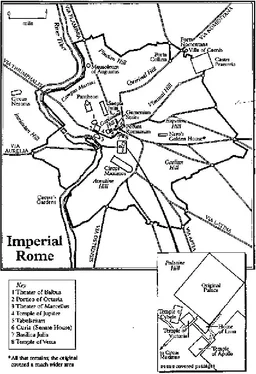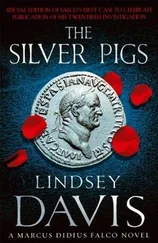Lindsey Davis - The course of Honor
Здесь есть возможность читать онлайн «Lindsey Davis - The course of Honor» весь текст электронной книги совершенно бесплатно (целиком полную версию без сокращений). В некоторых случаях можно слушать аудио, скачать через торрент в формате fb2 и присутствует краткое содержание. Жанр: История, на английском языке. Описание произведения, (предисловие) а так же отзывы посетителей доступны на портале библиотеки ЛибКат.
- Название:The course of Honor
- Автор:
- Жанр:
- Год:неизвестен
- ISBN:нет данных
- Рейтинг книги:5 / 5. Голосов: 1
-
Избранное:Добавить в избранное
- Отзывы:
-
Ваша оценка:
- 100
- 1
- 2
- 3
- 4
- 5
The course of Honor: краткое содержание, описание и аннотация
Предлагаем к чтению аннотацию, описание, краткое содержание или предисловие (зависит от того, что написал сам автор книги «The course of Honor»). Если вы не нашли необходимую информацию о книге — напишите в комментариях, мы постараемся отыскать её.
The course of Honor — читать онлайн бесплатно полную книгу (весь текст) целиком
Ниже представлен текст книги, разбитый по страницам. Система сохранения места последней прочитанной страницы, позволяет с удобством читать онлайн бесплатно книгу «The course of Honor», без необходимости каждый раз заново искать на чём Вы остановились. Поставьте закладку, и сможете в любой момент перейти на страницу, на которой закончили чтение.
Интервал:
Закладка:
* * *
He went back to the beginning.
"They got there, sick but safe. Landed in the east. Found the natives—a stiff fight—overnight. I hope a girl so well read as I tried to make you realizes that not many Roman battles take more than one day. The hero of the hour was . . ."
Caenis sat up. "Who?"
"Hosidius Geta."
"Who?"
"One of the legionary legates. Brilliant chap."
"Well done, Hosidius!" Caenis said mockingly.
Narcissus released a tetchy laugh. "Oh, your lad did well enough."
From Rutupiae three legions had moved out westward, thousands of horny feet in studded boots tamping down the chalk of an ancient Downland track. Eventually, from a high ridge above the River Medway, they had glimpsed the gray skein of the River Tamesis and beyond it, the marshes that guarded the heartland of their main opposition, the Catuvellauni tribe. Skirmishers began to harry the legions, but were beaten off. At the Medway, Togodumnus and Caratacus stood. The ford was too narrow, the ground too spongy to cross under attack. Any bridge there had ever been had disappeared.
Aulus Plautius prepared to cross the river.
On the far bank the warriors in checkered trousers and bare chests watched. Roman standard-bearers marched meaningfully to the approach, where they planted their eagles firmly on a knoll. Ranks of infantry moved from the ridge, then stood guard while men with poles tested the softness of the ground. Cavalry wheeled toward the ford, then circled back abortively, plashing through the shallows to the general's command point. Sometimes a horse, sucked into the hocks among the silt, reared in panic as it tried to regain firmer ground.
Behind the Britons sprawled a careless jumble of campsites where levies from different tribes had parked just as they arrived, confident that their attackers would be caught fast in a bottleneck. Farther off still were their horses and chariots. Not until they heard the first screams from the hamstrung horses did they realize that the Romans' Batavian auxiliaries had already come across.
Silently and without fuss, almost unnoticed even by their own army, the Batavians had slipped down the north side of the escarpment, entered the deep water far away to the right, and swum to the western bank. They were attached to the Fourteenth Gemina; they were one of the many groups of native specialists who were taken into the Roman legions to give them a chance of achieving citizenship and to let the army exploit their unique skills. These Batavians came from the area around the estuary of the Rhine; they were famous boatmen and pilots—and this detachment had been trained to swim, with their horses alongside, in their full weight of equipment.
They went straight for the chariot park and put the British horses out of action. At the roar when the tribesmen realized what was happening, the Batavians melted away.
On the Roman bank it was the two legions commanded by the Flavian brothers, Sabinus and Vespasian, who then made the move. Order materialized from the diversionary exercise. Screened by mounted auxiliaries—a line of cavalry upstream to break the force of the water and another lower down to catch any baggage that floated off—the soldiers began to swarm across the march while the Britons were unscrambling their chariots. The Britons hurled themselves upon this bridgehead. Vespasian and Sabinus held them off until dusk.
The third legion under Hosidius Geta went across in the dark.
The battle continued almost all the next day. In the end, Hosidius Geta's legion forced a wedge into the crammed ranks of half-naked warriors. Geta himself was surrounded but cut a swath free and broke out. His legion wheeled around to encircle the enemy, and the day and the province were won. The British forces broke and galloped north. Picking off stragglers and gathering up their own casualties, the Romans made after them. But the Britons had crossed the river where it widened; by the time pursuit arrived the tide had turned and flooded back up the estuary to form an impassable brackish lake.
Some Batavians swam the river, but they grew careless, lost their way among the marshes, and were cut apart by Caratacus. The general Aulus Plautius pitched camp on the south bank of the Tamesis, while pontoons were towed from Rutupiae to build a temporary bridge. The legions waited two months for the Emperor and the elephants to come from Rome.
" That was when you went?" demanded Caenis triumphantly.
Narcissus confirmed at last, "That was when I went across."
"What was it like?"
"Densely populated farmland with some forest in between. Wattle huts, mostly round, surrounded by tiny square fields with built-up boundary banks. Cattle, dogs everywhere, the best wheat outside Africa."
"And the blue men?"
"Extraordinary!" Narcissus exclaimed.
"Are the women blue?"
"No. And really, not many of the men. The women," Narcissus thought it appropriate to tell her, "were very tall, tawny as lions, and apparently more outspoken and single-minded even than you. Thank the gods we couldn't understand them! The ones we met were of course mostly princesses and queens."
"I suppose," Caenis said, glowering, "commanding officers abroad may have to have a lot of dealings with fierce barbarian queens?"
"Not," commented Narcissus, "if they have any sense!"
* * *
From what he had been telling her she gathered that the eastern sector of the country was by now subdued. One of the chieftains was believed to have died of wounds after the Battle of the Medway, though his brother Caratacus escaped into the west. Claudius had entered the Catuvellaunian citadel at Camulodunum, which he inaugurated as the Roman provincial capital.
"Useless," Narcissus moaned. "Too far east. Have to change it when we can. Still, he enjoyed himself."
"How long did you stay?"
"Sixteen days."
"What happened then?"
"Various kings surrendered and were laden with loans and gifts. Aulus Plautius was named first provincial governor. We sailed home. I left my man pottering round Gaul on his own."
"And that's it?"
"No, woman," Narcissus rebuked her. "That is by no means it."
He reckoned it would take them fifty years. Aulus Plautius would start now, planting a network of military forts, graveling roads, opening the ironworks in the southeast. Wine, oil, glass, perishable goods, would all go north in massive quantities; hides, hunting dogs, jet, oysters, grain, start trickling south. The legions—the Twentieth, Ninth, and Fourteenth—would establish bases in the east, the north, the middle west. But so far they had barely scratched a toehold; that was clear. In the south the Second Legion faced a major task.
Narcissus asked dourly, "I suppose you want to hear about your man?"
"Is there," Caenis enquired innocently, "anything to hear?"
She must know, since she knew Vespasian, there would be.
"With that one"—Narcissus stretched—"it is entirely up to him."
She said baldly, "I always told him that."
* * *
"This is between the two of us." Narcissus loved his secrecy. It usually meant what he had to say would be astounding half the world within a week. "My man really takes to him. Sent him into the south on his own—a free hand. He reports to the Governor, but his orders come direct from Claudius. There's an odd friendly king, Cogidumnus, on the coast, who for some reason has offered the Second Augusta a safe base. From there they can have the run of the southwest: the most ferocious tribes; dozens of hill forts bristling with nasty-tempered settlers slinging stones; some of the most fabulous defensive earthworks in the world. Somewhere in all that is more iron, plus the silver, the copper, the tin, and possibly the gold. The southwest, you realize, is where Rome really wants to be. The Second Augusta, in the command of your man, will be there for three years. I think we can assume that if he manages this, Vespasian will be made."
Читать дальшеИнтервал:
Закладка:
Похожие книги на «The course of Honor»
Представляем Вашему вниманию похожие книги на «The course of Honor» списком для выбора. Мы отобрали схожую по названию и смыслу литературу в надежде предоставить читателям больше вариантов отыскать новые, интересные, ещё непрочитанные произведения.
Обсуждение, отзывы о книге «The course of Honor» и просто собственные мнения читателей. Оставьте ваши комментарии, напишите, что Вы думаете о произведении, его смысле или главных героях. Укажите что конкретно понравилось, а что нет, и почему Вы так считаете.












